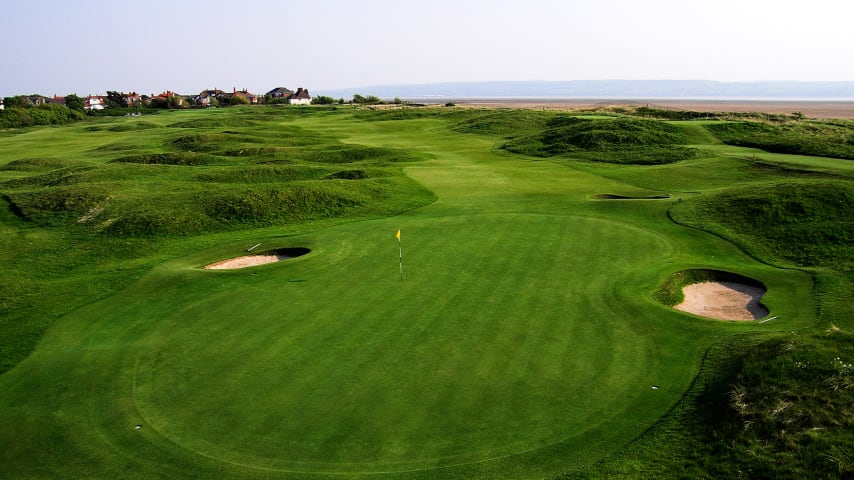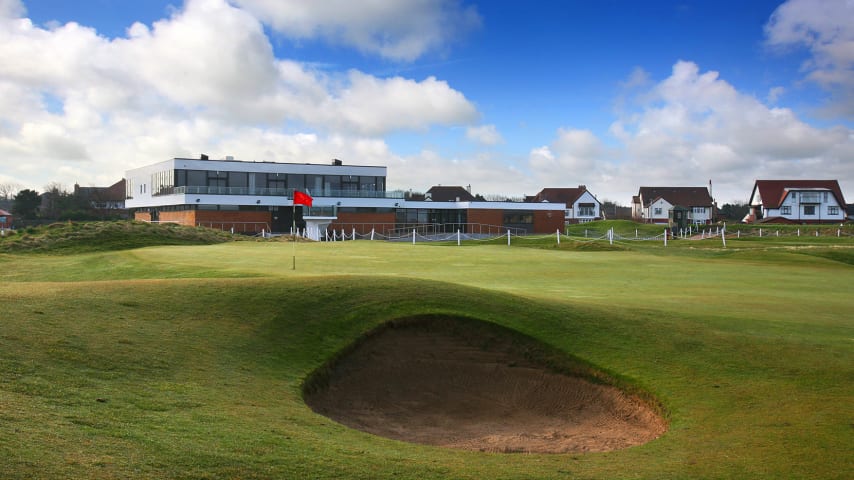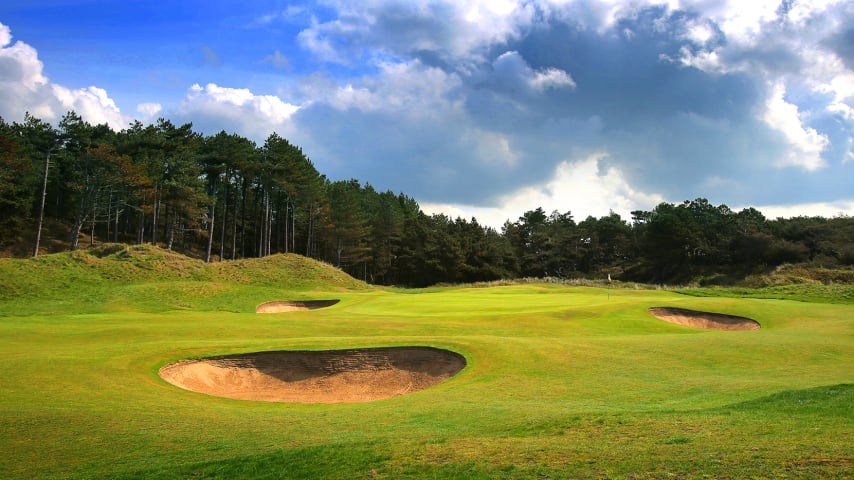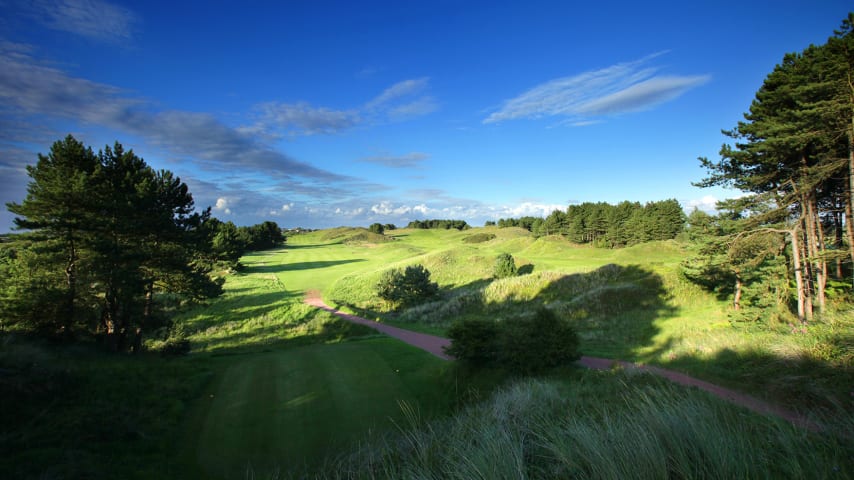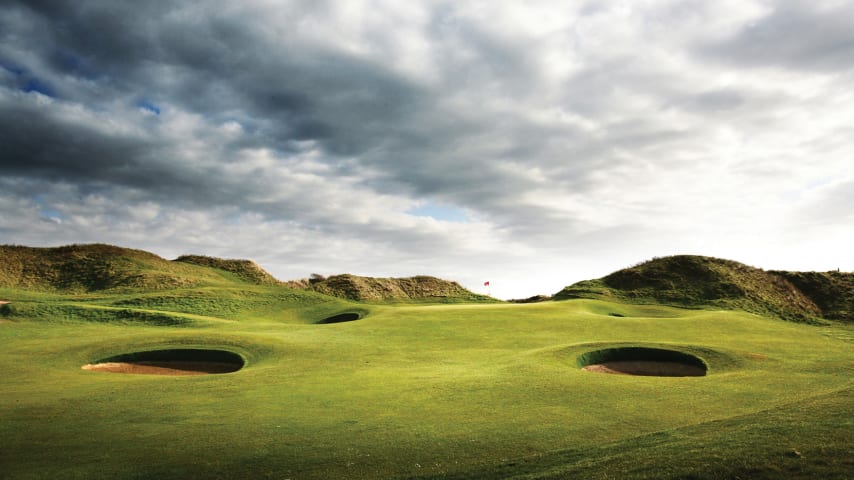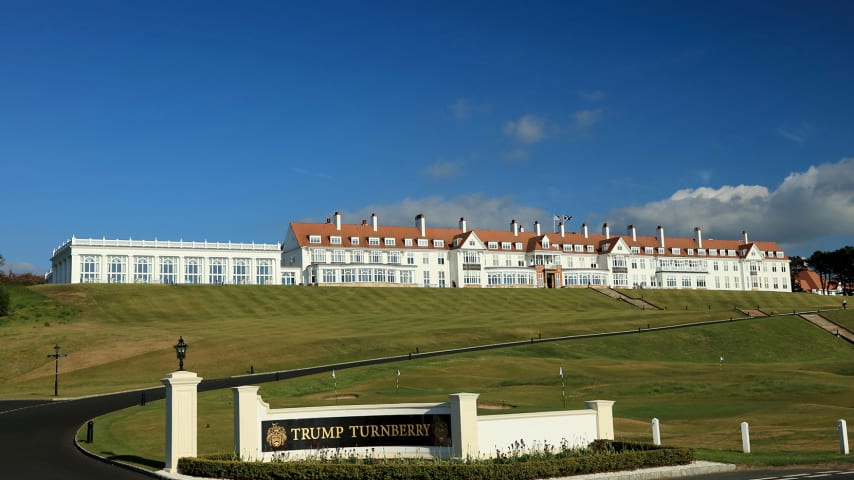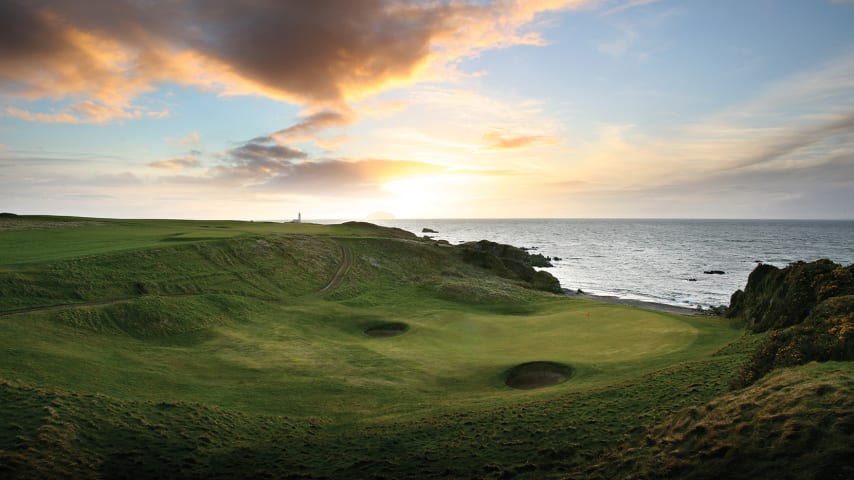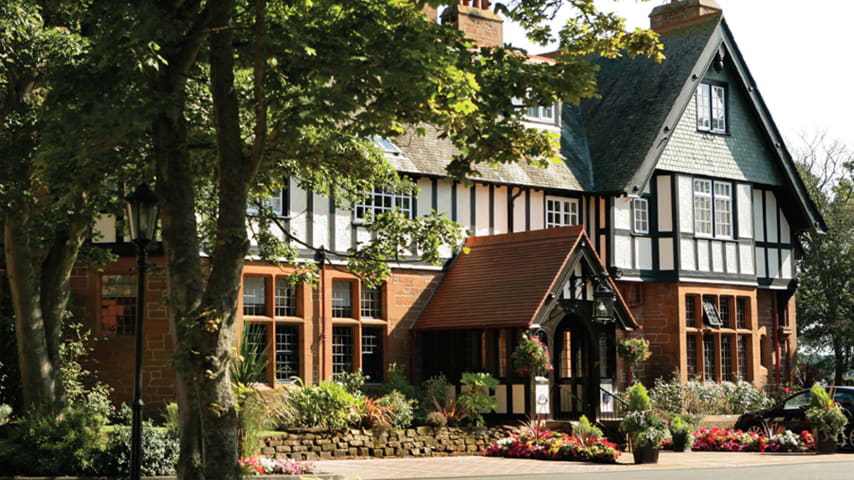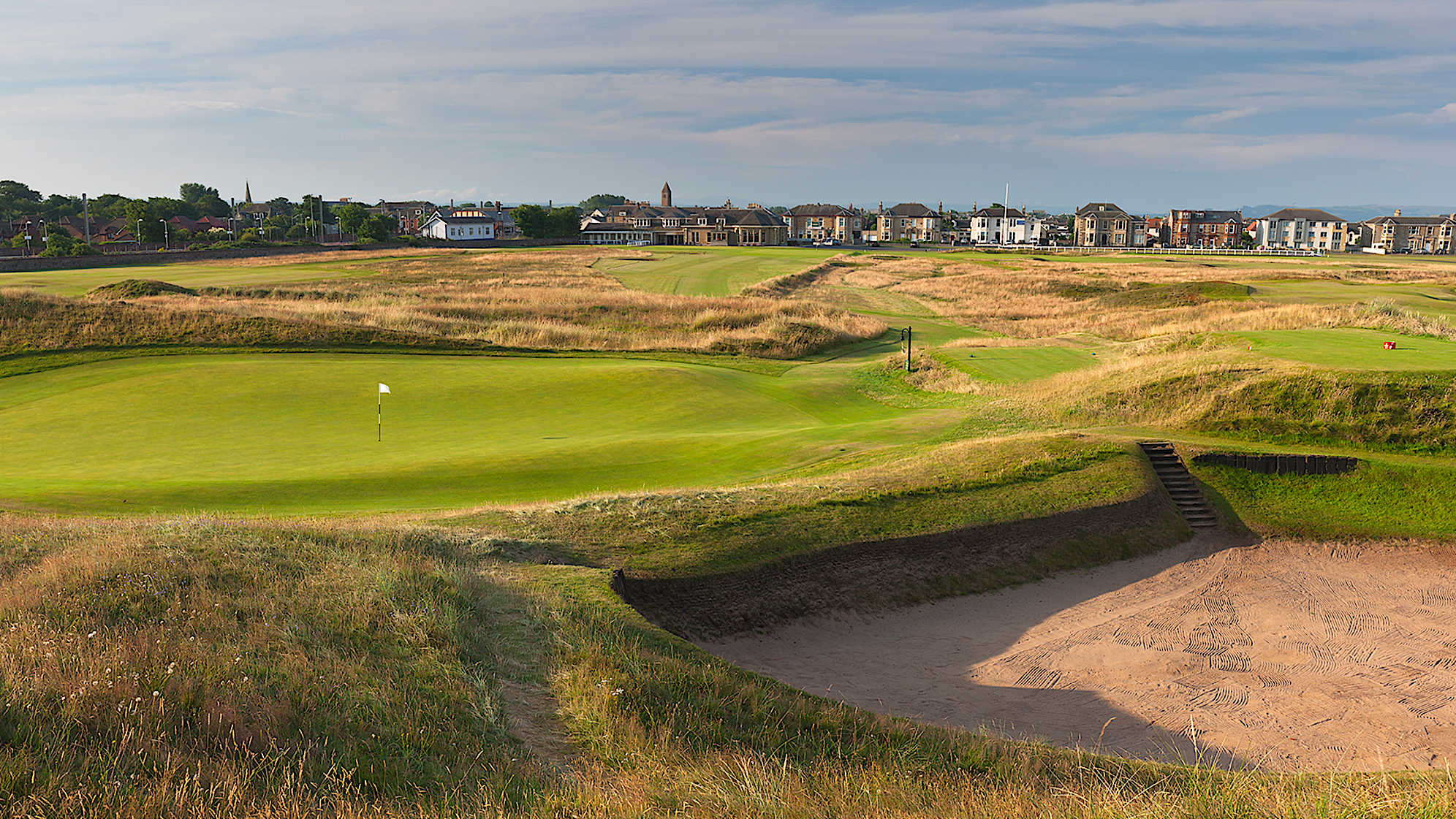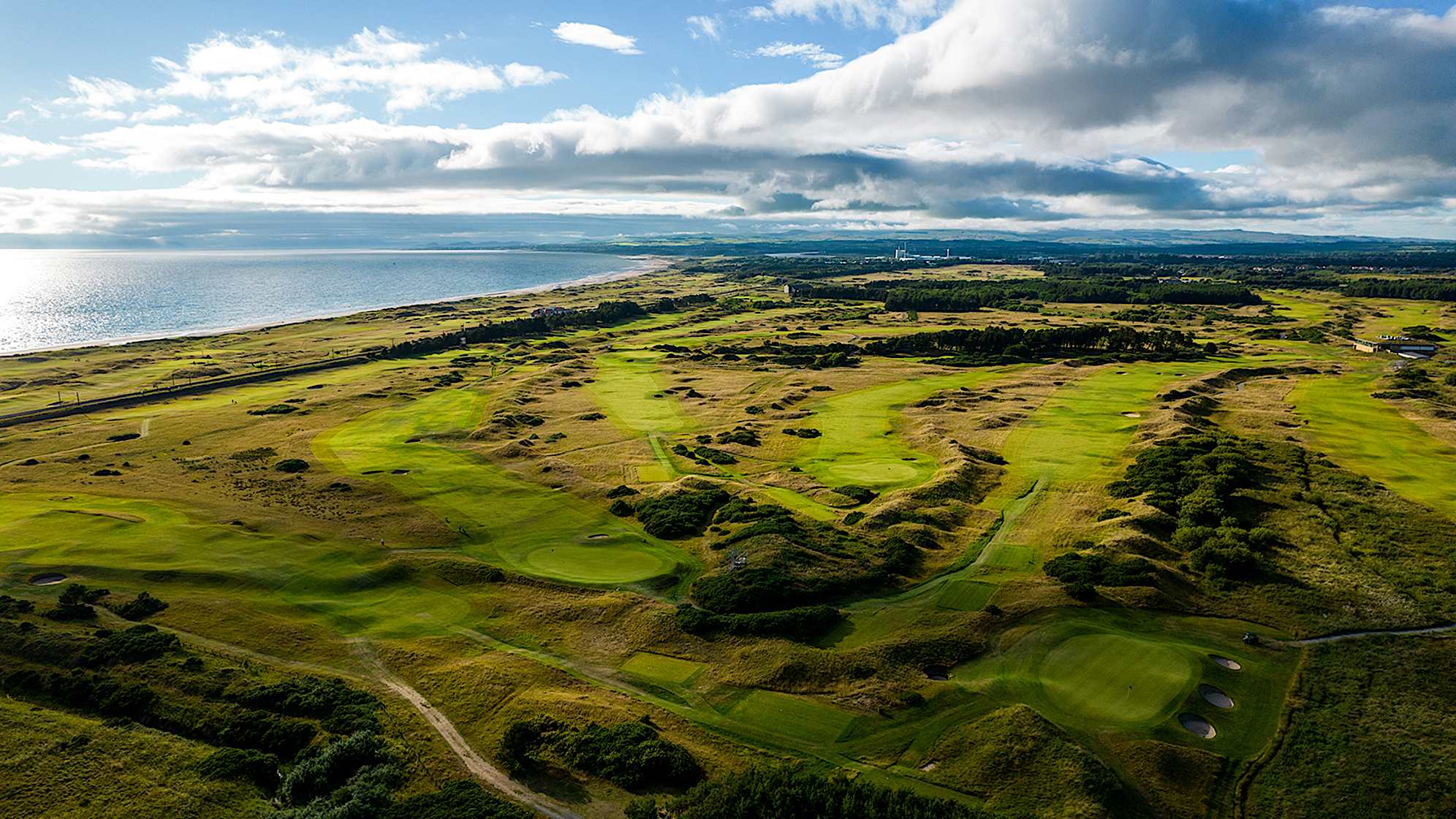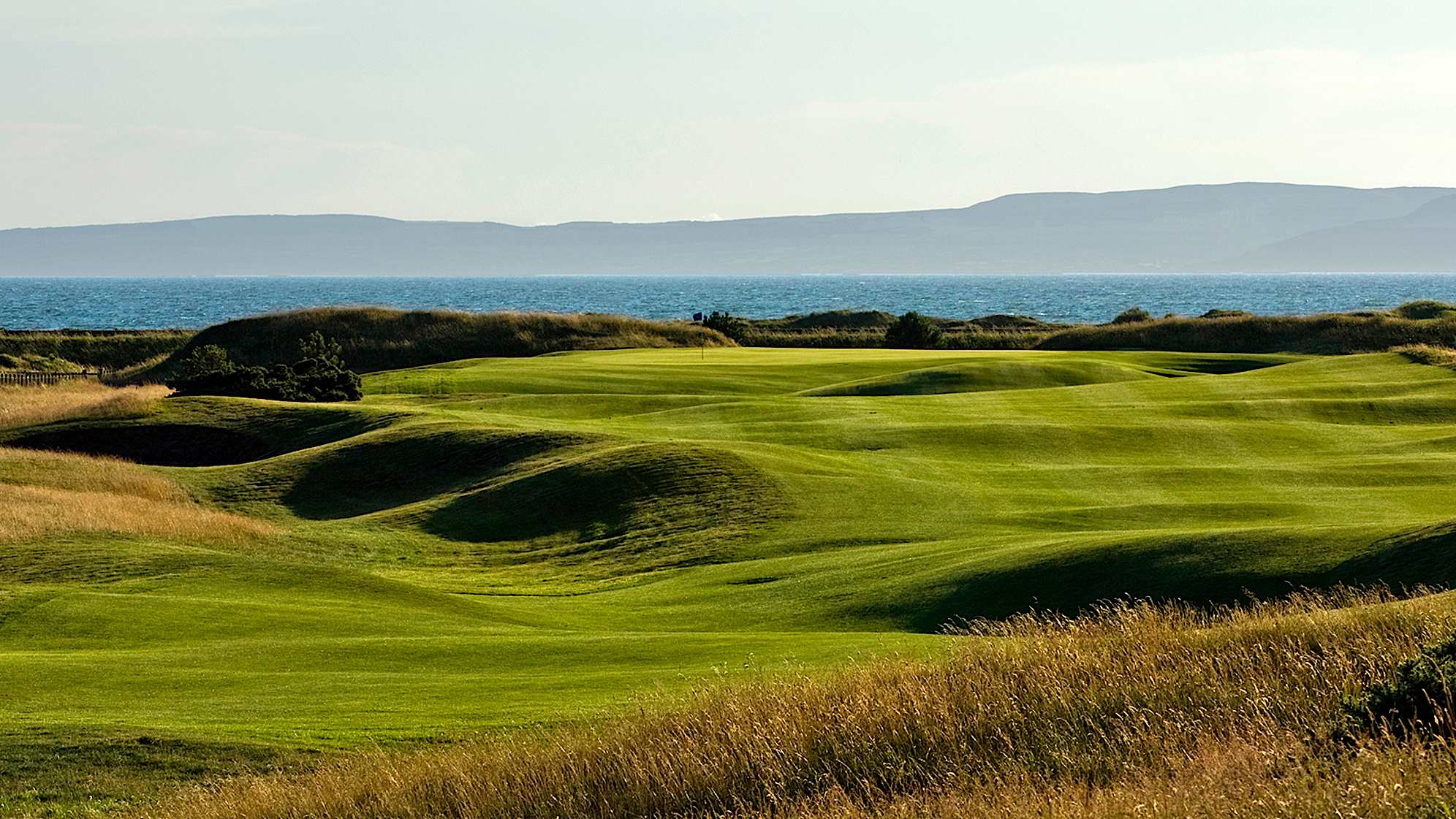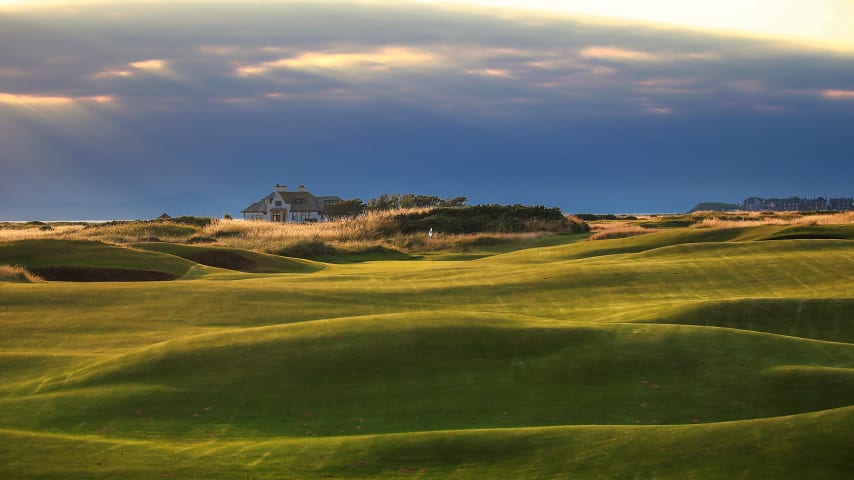Brought to you by

Royal Liverpool to Royal Troon: Road trip through the history of The Open
11 Min Read
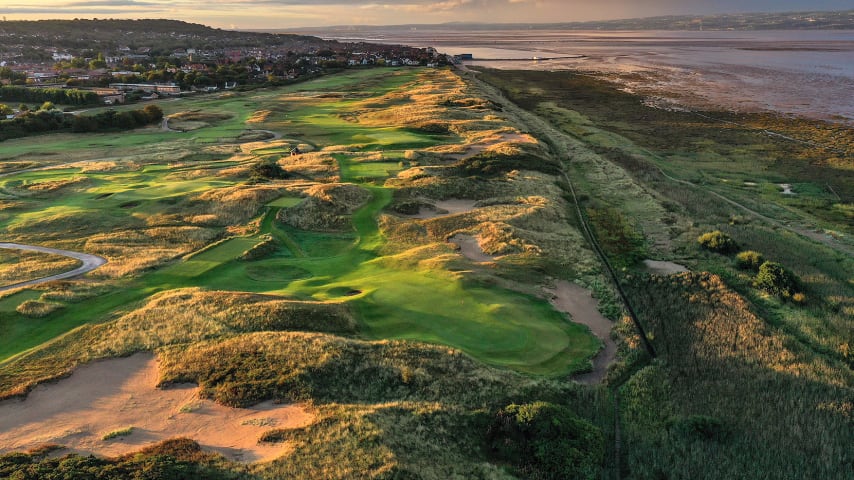
Your guide to 12 iconic courses in just 10 days
With The Open Championship upon us, all eyes are on the U.K. and the finest links courses across the country. Royal Liverpool and the surrounding area will be in the spotlight once again as the world’s best golfers look to win the final Major of the year.
While all the talk will be around the history of The Open and the host venues on the rota, we are going to be embarking on a road trip from the 2023 Open Championship host, Royal Liverpool Golf Club, to the 2024 Open Championship host, Royal Troon Golf Club. Our friends at Golfbreaks by PGA TOUR will be highlighting past and present Open Championship courses as well as the hidden gems you may not have heard of to set up the ultimate links golf road trip.
Day 1: Royal Liverpool
Starting off our road trip, we will be playing the 2023 Open Championship host, Royal Liverpool. This iconic links has hosted 12 Open Championships including Tiger Woods’ win in 2006 and Rory McIlroy’s victory in 2014. Opened in 1869, the course underwent a redesign in 2001 that lengthened it to a staggering 7,300 yards, perfect for hosting a modern Open Championship. The terrain is unusually flat due to the course being built on the site of an old horse racetrack. Most of the property is exposed to the coast with only six holes playing amongst sand dunes which will make the wind a factor during your round.
After your round, it's a quick 20-minute drive into the heart of Liverpool for a stay at the Hard Days Night Hotel, a four-star, Beatles-inspired hotel. Enjoy a comfortable stay in one of their 110 rooms uniquely furnished with Beatles artwork. Have a meal and a drink at Bar Four or Blake’s, both onsite, or discover many other bars and restaurants that Liverpool has to offer.
Day 2: West Lancashire and Formby
As Day 2 arrives, we are heading 7 miles up the coast to our first hidden gem, West Lancashire Golf Club! The club was founded in 1873 and underwent a redesign in 1961 by C.K. Cotton with a new clubhouse being built a year later. The course is built among the natural dunes with humps and hollows contouring the fairways and greens. The rough is thick and lush, and pot bunkers are strategically placed in all the right spots. Elevated tee shots provide unobstructed views of the property and the scenic coast.
A quick 20-minute drive north from West Lancashire is where you will find the Formby Golf Club. Founded in 1884 with just nine holes, it was extended to 18 holes in 1912 before the final revision and extension occurred in 1980s. The course itself is a mix of links and parkland style offering golfers undulating fairways and greens, deep, punishing bunkers and elevation changes off the tee box. The parkland landscape comes with an abundance of trees off the fairways which help to protect from much of the wind coming from the coast.
Upon departing from Formby, head up the coast to the town of Southport where you will stay for a few nights. Southport is a great little city on the northwest coast of England with multiple hotel and restaurant options. Stay at the four-star Bliss Hotel located on Marine Lake, a half mile off the coast, or choose The Vincent Hotel further inland and within walking distance to many of Southport’s restaurants, bars and shops. Whichever option you choose, you will be a short distance from the next two courses on the trip.
Day 3: Hillside and Royal Birkdale
As the next day arrives, we embark on a long day of golf with a great hidden gem and an Open Championship host. Located just 2 miles south of Southport, we start our day at the underappreciated Hillside Golf Club. Opened in 1911, Hillside is a little younger than a lot of the other courses in the area, however the design is a true links test. The front nine runs alongside the train tracks over relatively flat ground while the back nine weaves through valleys and dunes making for an incredible round of golf. The club has hosted many amateur and professional tournaments including the 2019 British Masters making it one of the best gems in England.
The next stop brings us to our second Open Championship host on our road trip, Royal Birkdale, which has hosted The Open 10 times in its illustrious history. The golf club was founded in 1889 but moved locations a few times before settling on the present property in 1897. The par-70 layout measures just over 7,100 yards and while it is a fair test, it can be very challenging especially when the wind kicks up. The links offers golfers accessible fairways with small hollows and valleys while the greens are carved into large dunes making the putts hard to read. The bunkers are expertly placed throughout the course and collect the stray tee ball or mishit approach shots. Distance and accuracy play a huge roll in scoring well when you play Royal Birkdale.
After a long day of golf, head back into Southport for a relaxing evening in the city or at your hotel as tomorrow will be a long day of travel.
Day 4: Royal Lytham & St. Annes, depart for Turnberry
Today is the final day in the Liverpool & Southport area before we travel up to Scotland to discover the great golf in the Troon area, but first, we are playing the last of the “Three Royals,” Royal Lytham & St Annes! Royal Lytham & St. Annes Golf Club was founded in 1886 and, similarly to Royal Birkdale, moved around before settling on the current location in 1897. This premier course has hosted 11 Open Championships, two Ryder Cups and numerous other major tournaments. The fairways are relatively flat, but moderate-sized dunes create subtle elevation changes and help to contour the greens. The biggest obstacle to avoid is the 167 bunkers spread throughout the property, mainly guarding the greens and near the landing areas in the fairway. At just over 7,100 yards from the tips, this par-70 will challenge you at every turn so make sure to bring your “A-game” when you battle this great links.
After your round at Royal Lytham & St. Annes it is time to hop in the car and head north as we drive up the scenic English countryside into Scotland for our next leg of the trip. The 215-mile journey from Southport to Troon will take you about four hours before we stay put for a day or two. As we arrive in Scotland, we are staying and playing at the luxurious, five-star Trump Turnberry Resort just south of Troon.
Day 5: King Robert the Bruce
On the first day of our stay at Trump Turnberry Resort, we are playing the King Robert the Bruce Course, which was opened in 2017. Named after Robert I, the King of Scots from 1306 to 1329, this course measures just under 7,000 yards and offers a challenging test of golf with undulating fairways, heavy gorse and natural wetlands. Holes 8-11 are the most scenic of the holes as they play down by the water offering golfers spectacular views of the coastline and Turnberry Lighthouse. This layout is a great compliment to its big brother, the Ailsa Course, which we will play tomorrow.
After the round, grab a bite to eat and drink at one of the many restaurants and bars, head to the spa for a treatment, steam or explore one of the many other activities the resort has to offer.
Day 6: Ailsa Course, depart for Troon
For the second and final day of our stay at Trump Turnberry, we are playing the Ailsa Course, a four-time Open Championship host. Opened in 1902, the historic links and hotel (opened in 1906) were repurposed into an air base during both world wars with several holes being flattened and turned into a runway. After years of intensive work, it was reopened in 1951, and in 2015 the entire course was upgraded by Martin Ebert and is now considered one of the best in Scotland. Known for its white and gold lighthouse that can be seen throughout the property, the Ailsa Course plays along clifftops and sand dunes with dramatic elevation changes and scenic views. The signature hole is the par-3 ninth that sits in the shadow of the lighthouse and plays downhill over the cliffs to a green guarded by bunkers left and right. A round at the Ailsa Course is truly a Scottish golf experience that is one you will not forget for a very long time.
After the round on the Ailsa, the trip continues as we head 25 miles north to Troon where we will stay for the remainder of the trip. When we arrive in Troon, we have plenty of options for accommodation, but we recommend either the four-star Piersland House Hotel or the five-star Marine Hotel as both offer easy access to the golf and the town.
Day 7: Prestwick
As our first day in Troon arrives, we are getting geared up to play the first-ever host of the Open Championship, Prestwick Golf Club. Located 5 miles down the road from the hotel, the historic Prestwick Golf Club opened in 1851 and was originally designed by Old Tom Morris. Prestwisk hosted the first 12 Open Championships and has hosted the tournament a total of 24 times, with only the Old Course at St. Andrews hosting more (30). The terrain of the links is shaped by the large sand dunes and small burns that run throughout the course. The fairways are narrow and undulating with many blind approach shots into the firm, fast greens. At just over 6,900 yards, you will need to be accurate with your tee ball as the bunkers are strategically placed along the fairways and guarding the greens. Your round at Prestwick will make you appreciate links golf and the long history of the “Birthplace of The Open.”
Day 8: Dundonald Links
As the end of the trip approaches, we still have two more hidden gems and the final Open Championship host still to play. Today’s round of golf is being played 7 miles north of the hotel at the spectacular Dundonald Links. The original design opened in 1911 as Southern Gailes and was purchased by the military to utilize for the World Wars. Loch Lomond Golf Club purchased the property in 2003 and enlisted Kingsbarns Golf Links designer, Kyle Phillips, to construct a modern links which was opened in 2005. The land is shaped by large dunes and deep hollows but is a fair test of golf as everything is laid out in front of you. While the bunkers aren’t as prevalent as some of the other courses, they are placed along the landing areas in the fairways and around the greens waiting to catch any errant shots. The greens themselves are long, but not particularly wide and the undulating terrain makes for some interesting putts.
Day 9: Western Gailes
Our last hidden gem course on our road trip is Western Gailes Golf Club, which sits directly across the train tracks from Dundonald Links. This classic links was opened in 1899 and runs parallel to the sea in an out-and-back routing. The layout has stayed very similar to the original design and plays as a par 71 at just over 7,000 yards from the tips. Due to its proximity to the sea, the property is exposed to the prevailing winds which creates a demanding challenge to go with the excellent routing. The natural terrain of the land creates rolling hills in the fairways and the tall dunes offer elevation changes, especially on the seaside holes. Pot bunkers and tributary burns can be found throughout and need to be avoided in order to score well. Most of the green complexes are decent size and lie within hollows to help funnel the ball towards the green, but the subtle slopes make putting rather difficult.
Day 10: Royal Troon
On the final day of our road trip, we arrive at Royal Troon, the host of the 152nd Open Championship in 2024. Located in the heart of Troon, this historic club was founded in 1878 and offers golfers 36 holes of links golf with the Old Course being The Open layout. Royal Troon has hosted nine Open Championships with the most recent one taking place in 2016. As the old cliché goes, “It is a tale of two nines,” and that is true when you play at Royal Troon. The front nine generally play shorter and downwind, which offers golfers length off the tee and lower scores. Meanwhile, the back nine plays into the wind, making it much longer so you will struggle to just make pars. The course’s biggest defense is the fairways bunkers, which are dotted around the landing areas so accuracy and strategy off the tee are key factors in playing well. The greens are some of the smallest you will find at any Open Championship venue and there is no better example of this than the signature hole, the par-3 eighth called “The Postage Stamp.” The 123-yard hole plays slightly downhill to a narrow green surrounded by bunkers on all sides and slopes that will guide your ball into thick rough or deep bunkers.
The golf coasts of North West England and South West Scotland are graced by some of the best links courses in the British Isles, a fact endorsed by the number of The Opens and qualifiers that they have hosted between them. If this has inspired you to take a trip across the pond, then contact our friends at Golfbreaks by PGA TOUR, or call (+1) 844.676.4653 to speak to a golf travel expert.

